ABSTRACT:
Delay tolerant networks are characterized by the sporadic connectivity between their nodes and therefore the lack of stable end-to-end paths from source to destination. Since the future node connections are mostly unknown in these networks, opportunistic forwarding is used to deliver messages. However, making effective forwarding decisions using only the network characteristics (i.e. average intermeeting time between nodes) extracted from contact history is a challenging problem. Based on the observations about human mobility traces and the findings of previous work, we introduce a new metric called conditional intermeeting time, which computes the average intermeeting time between two nodes relative to a meeting with a third node using only the local knowledge of the past contacts. We then look at the effects of the proposed metric on the shortest path based routing designed for delay tolerant networks. We propose Conditional Shortest Path Routing (CSPR) protocol that routes the messages over conditional shortest paths in which the cost of links between nodes is defined by conditional intermeeting times rather than the conventional intermeeting times. Through trace-driven simulations, we demonstrate that CSPR achieves higher delivery rate and lower end-to-end delay compared to the shortest path based routing protocols that use the conventional intermeeting time as the link metric.
SYSTEM ANALYSIS:
EXISTING SYSTEM:
Message delivery in sparse Mobile Ad hoc Networks (MANETs) is difficult due to the fact that the network graph is rarely (if ever) connected. A key challenge is to find a route that can provide good delivery performance and low end-to-end delay in a disconnected network graph where nodes may move freely. Some bridge nodes are identified based on their centrality characteristics, i.e., on their capability to broker information exchange among otherwise disconnected nodes. Due to the complexity of the centrality metrics in populated networks the concept of ego networks is exploited where nodes are not required to exchange information about the entire network topology, but only locally available information is considered. Then SimBet Routing is proposed which exploits the exchange of pre-estimated “between’s’ centrality metrics and locally determined social “similarity’ to the destination node. We present simulations using real trace data to demonstrate that SimBet Routing results in delivery performance close to Epidemic Routing but with significantly reduced overhead. Additionally, we show that SimBet Routing outperforms PRoPHET Routing, particularly when the sending and receiving nodes have low connectivity.
PROPOSED SYSTEM:
We propose Conditional Shortest Path Routing (CSPR) protocol that routes the messages over conditional shortest paths in which the cost of links between nodes is defined by conditional intermeeting times rather than the conventional intermeeting times. Through trace-driven simulations, we demonstrate that CSPR achieves higher delivery rate and lower end-to-end delay compared to the shortest path based routing protocols that use the conventional intermeeting time as the link metric.
Routing in delay tolerant networks (DTN) is a challenging problem because at any given time instance, the probability that there is an end-to-end path from a source to a destination is low. Since the routing algorithms for conventional networks assume that the links between nodes are stable most of the time and do not fail frequently, they do not generally work in DTN’s. Therefore, the routing problem is still an active research area in DTN’s.
We introduced a new metric called conditional intermeeting time inspired by the results of the recent studies showing that nodes’ intermeeting times are not memory less and that motion patterns of mobile nodes are frequently repetitive. Then, we looked at the effects of this metric on shortest path based routing in DTN’s. For this purpose, we updated the shortest path based routing algorithms using conditional intermeeting times and proposed to route the messages over conditional shortest paths. Finally, we ran simulations to evaluate the proposed algorithm and demonstrated the superiority of CSPR protocol.
MODULE DESCRIPTION:
NETWORKING MODULE:
Client-server computing or networking is a distributed application architecture that partitions tasks or workloads between service providers (servers) and service requesters, called clients. Often clients and servers operate over a computer network on separate hardware. A server machine is a high-performance host that is running one or more server programs which share its resources with clients. A client also shares any of its resources; Clients therefore initiate communication sessions with servers which await (listen to) incoming requests.
MULTI HOP MODULE:
Analyze the load for a homogeneous multi-hop wireless network for the case of straight line routing in shortest path routing is frequently approximated to straight line routing in large multi-hop wireless networks. Since geographical and geometric attributes of nodes and routes affect the nodal load, we employ results from geometric probabilities to solve the problem. Based on our analytical results, we are able to show the precise relationship between the number of nodes and the load at each node, and the geographical distribution of the relaying load over the network for different scenarios. Interestingly, straight line routing itself can balance the relay load over the disk in certain cases.
CPSR (Conditional Shortest Path Routing):
We propose Conditional Shortest Path Routing (CSPR) protocol that routes the messages over conditional shortest paths in which the cost of links between nodes is defined by conditional intermeeting times rather than the conventional intermeeting times. Through trace-driven simulations, we demonstrate that CSPR achieves higher delivery rate and lower end-to-end delay compared to the shortest path based routing protocols that use the conventional intermeeting time as the link metric.
Routing in delay tolerant networks (DTN) is a challenging problem because at any given time instance, the probability that there is an end-to-end path from a source to a destination is low. Since the routing algorithms for conventional networks assume that the links between nodes are stable most of the time and do not fail frequently, they do not generally work in DTN’s. Therefore, the routing problem is still an active research area in DTN’s.
We introduced a new metric called conditional intermeeting time inspired by the results of the recent studies showing that nodes’ intermeeting times are not memory less and that motion patterns of mobile nodes are frequently repetitive. Then, we looked at the effects of this metric on shortest path based routing in DTN’s. For this purpose, we updated the shortest path based routing algorithms using conditional intermeeting times and proposed to route the messages over conditional shortest paths. Finally, we ran simulations to evaluate the proposed algorithm and demonstrated the superiority of CSPR protocol.
SIMULATIONS RESULT:
To evaluate the performance of our algorithm, we have built a discrete event simulator in Java. In this section, we describe the details of our simulations through which we compare the proposed Conditional Shortest Path Routing (CSPR) algorithm with standard Shortest Path Routing (SPR). To collect several routing statistics, we have generated traffic on the traces of these two data sets. For a simulation run, we generated 5000 messages from a random source node to a random destination node at each seconds. We assume that the nodes have enough buffer space to store every message they receive, the bandwidth is high and the contact durations of nodes are long enough to allow the exchange of all messages between nodes.
System Requirements
Hardware Requirements:
PROCESSOR : PENTIUM IV 2.6 GHz
RAM : 512 MB DD RAM
MONITOR : 15” COLOR
HARD DISK : 20 GB
FLOPPY DRIVE : 1.44 MB
CDDRIVE : LG 52X
KEYBOARD : STANDARD 102 KEYS
MOUSE : 3 BUTTONS
Software Requirements:
Front End : Java, Swing
Back End : MS Access
Tools Used : Eclipse 3.3
Operating System : WindowsXP/7
[ads1]

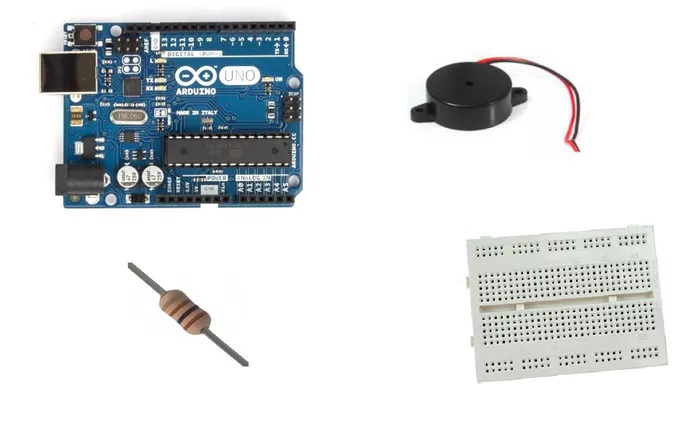
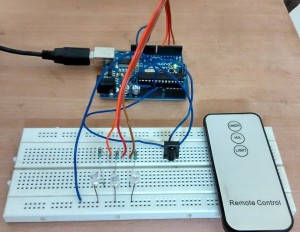


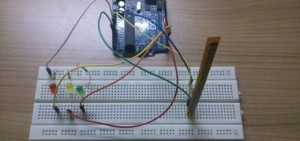
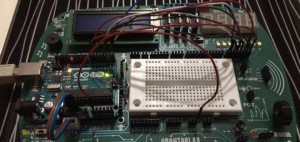
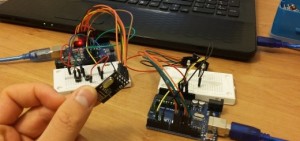

Post Comment
You must be logged in to post a comment.